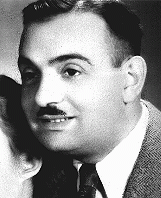You searched for: ust众筹理财项目定制开发【tg���������@ek7676】平台包网搭建unit众筹理财项目定制开发【tg���������@ek7676】平台包网搭建inhrgdhghm
<< Previous | Displaying results 1461-1470 of 1751 for "ust众筹理财项目定制开发【tg���������@ek7676】平台包网搭建unit众筹理财项目定制开发【tg���������@ek7676】平台包网搭建inhrgdhghm" | Next >>
-
Lifcia Najman
ID CardLifcia and her brother and two sisters were born to religious Zionist parents in Radom, a major center of Polish leather production. The city had more than 100 tanneries and shoe factories. Lifcia's father worked as a leather broker, matching manufacturers with clients who sought specific types of leather. The Najman family lived in a two-room apartment in the center of town. 1933-39: At secondary school, Lifcia learned math, science, Polish language, history, and German. Three times a week she attended a…
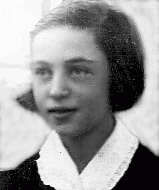
-
Miru Alcana
ID CardMiru was the youngest of four children born to a family of Spanish-Jewish descent on the island of Rhodes. Rhodes had been occupied by Italy since 1912, so Miru learned Italian as well as French at school. At home the Alcana family conversed in Ladino, the Spanish-Jewish language. Miru attended a Jewish school, where she received instruction in Hebrew three times a week. 1933-39: Life on Miru's beautiful island was pleasant and the Alcanas were close with their neighbors. She called them Auntie Rivka and…
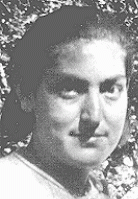
-
Sevek Fishman
ID CardSevek's religious Jewish family owned a haberdashery business in Kaluszyn, a suburb of Warsaw. The oldest of six children (three boys and three girls), Sevek completed high school and was then apprenticed to a tailor. 1933-39: Each Friday, before the Sabbath began, Sevek's mother asked the neighbors if they had enough food for the Sabbath. If they didn't, she brought them a meal. Although Sevek belonged to a non-religious Zionist group, Ha Shomer ha-Tsa'ir, and didn't wear a skullcap like religious Jews,…
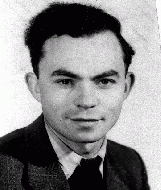
-
Jolan (Cipi) Katz
ID CardThe oldest of eight children, Jolan grew up in a religious Jewish family. She was usually known by her Yiddish nickname, Cipi. After Jolan was born, her parents moved the family to Kisvarda, a town in northeastern Hungary. There she grew up with her four sisters and one surviving brother. Jolan had finished her schooling by 1933. 1933-39: Hitler was popular in Kisvarda. Jolan's mother wanted the family to leave Hungary before the situation worsened, but her father, who had been to the United States…
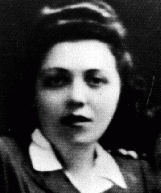
-
Maria Terez Halpert Katz
ID CardAlso known by her Yiddish name, Tobe, Terez was raised in a religious Jewish family. Her father and two brothers were rabbis. Though Terez was a promising student, she didn't pursue an advanced education because her traditional family wanted her to marry. So Terez married Menyhert Katz and moved to the town of Kisvarda [in Hungary]. There, she raised five daughters and one son; two other sons died. 1933-39: Terez's twin sons died when they were 8 months old, and she was convinced that their death was a…
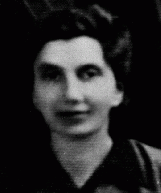
-
Felicia Karo
ID CardFelicia grew up in a Jewish family living in a predominantly Catholic neighborhood in the large, industrial city of Lodz. Her father's side of the family had lived in Poland for 400 years. He was the principal of a Jewish secondary school for boys. Known affectionately by family and friends as Lusia, Felicia attended a bilingual Jewish school in which both Hebraic and Polish subjects were taught. 1933-39: When Felicia was 12 she heard a lot of bad things about the Nazis. A Polish-born German Jewish…
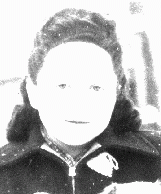
-
Frieda Greinegger
ID CardFrieda was the fourth of five children born to strict Catholic parents. She had one brother and three sisters. Frieda grew up on a large farm near the village of Michaelnbach in northern Austria. The farm had cattle, horses, pigs and poultry, and the children worked long hours helping their parents on the farm. At age 12, Frieda left school to work full time on the farm. 1933-39: Germany annexed Austria in March 1938. When war broke out in September 1939, Frieda's brother was drafted into the German army.…
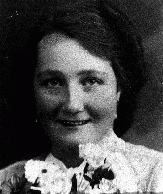
-
Hetty d'Ancona
ID CardHetty was the only child of a middle-class secular Jewish family. Hetty's parents were Sephardic, the descendants of Jews who had been expelled from Spain in 1492. The family lived in an apartment above her father's clothing business. Hetty's grandparents and other relatives lived nearby. 1933-39: Hetty enjoyed growing up in the Netherlands. Her Jewish neighborhood was in the older part of Amsterdam, in the city center. When she was 6 years old, she began attending a public school. Everywhere in Amsterdam…
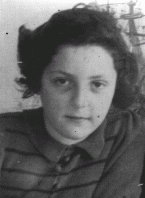
-
Laura Litwak
ID CardLaura was the second of five children born to religious Jewish parents in the industrial city of Lvov. She was often called affectionately by her nickname, Lorka. Coming from an educated family living in a multi-ethnic part of Poland, she grew up speaking Polish, Russian, German and Yiddish. As a young woman, she earned a humanities degree from St. Nicholas University in Lvov. 1933-39: In April 1935 Laura became Mrs. Daniel Schwarzwald. Her husband was a successful lumber exporter, and they lived in a…
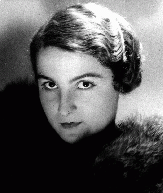
-
Max Diamant (now Josef Burzminski)
ID CardMax was born to a Jewish family in the Austrian capital of Vienna. When he was a small child his family moved to Przemysl, an urban center in southeastern Poland with a largely Jewish population. Max spent the remainder of his childhood there; his parents ran a small grocery and cafeteria to support their five children. 1933-39: The Germans reached Przemysl on September 14, 1939. It was a brilliant sunny day when planes suddenly appeared; Max's family thought the planes were their own until they began…
